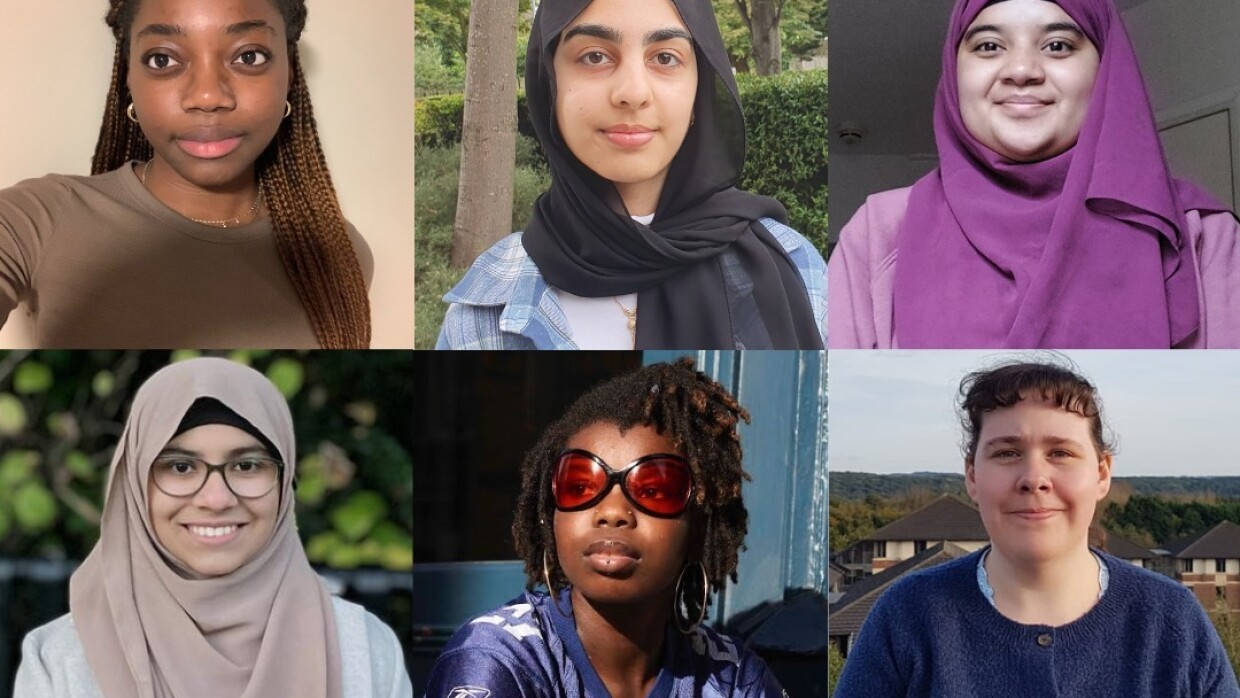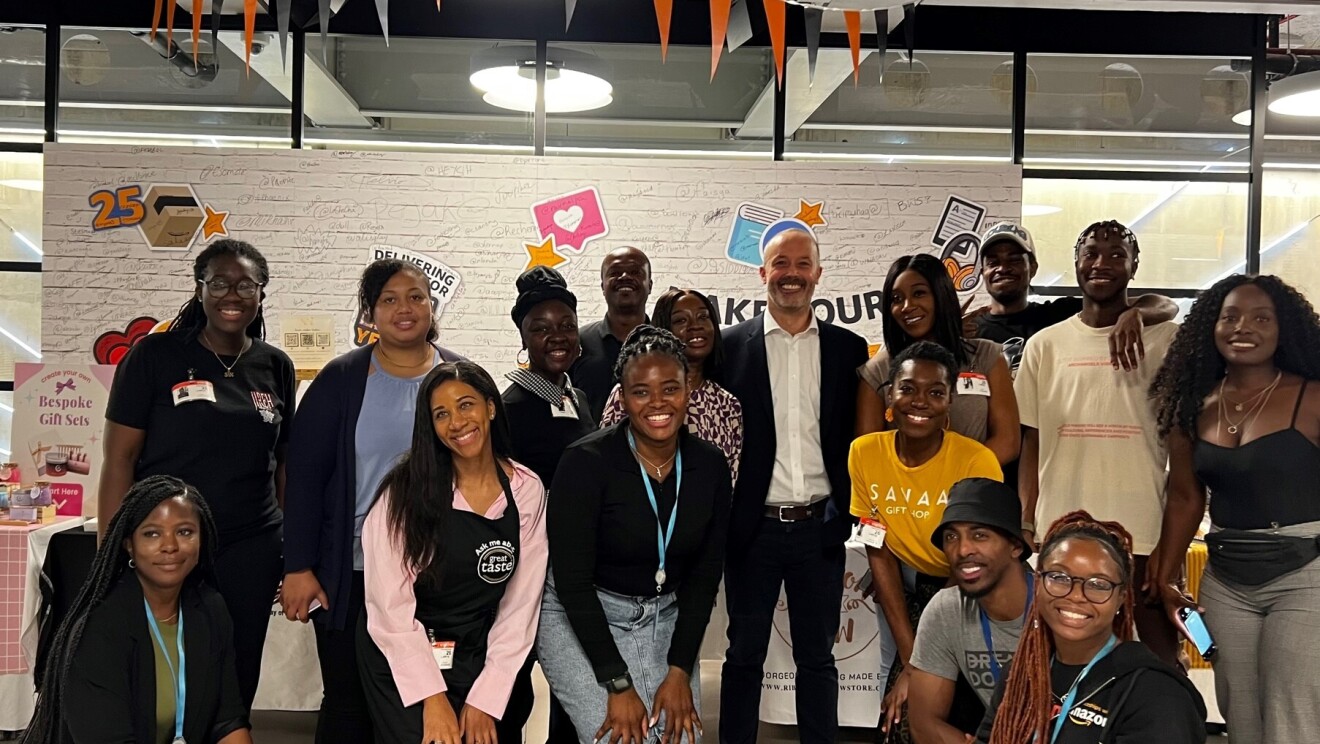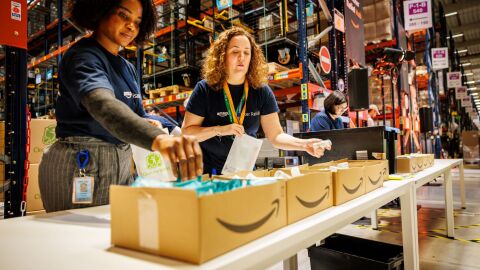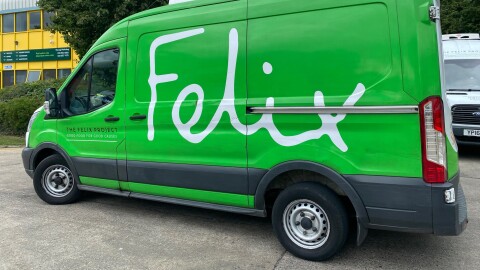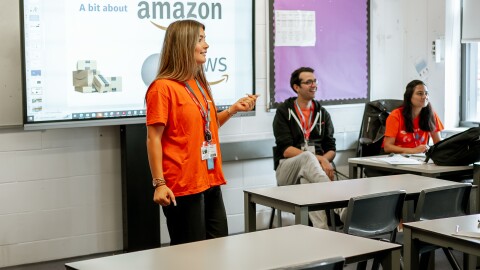Amazon has expanded its Amazon Future Engineer Bursary Programme, awarding 30 more promising students from low-income households with a financial support package of up to £20,000 to pursue university degrees in STEM subjects.
The Amazon Future Engineer Bursary, created in partnership with the Royal Academy of Engineering, was established to help address the underrepresentation of women studying computer science and related engineering courses at UK universities.
How Amazon is breaking barriers to opportunity
A recent study from The Sutton Trust revealed that there are persistent access gaps for students from the least well-off families, particularly at the most selective universities. In 2020, the number of undergraduates attending the Russell Group universities from the most disadvantaged areas of the UK was one in 13, compared with one in seven at other universities.
Despite ongoing efforts to address the gender imbalance of students studying STEM subjects at university, the latest data from UCAS reveals that women accounted for only 19% of accepted applications for both engineering and computing degrees in 2022.
Since the launch of the Bursary in 2021, Amazon has awarded over £1 million worth of funding and currently supports 75 women studying STEM-related degrees at UK universities.
“Through Amazon Future Engineer, we want to break down the barriers to opportunity that so many young people face to help diversify our next generation of tech talent.”
“The tech industry struggles with a lack of diversity compounding the digital skills gap and ultimately constraining our ability to innovate and drive growth,” said Lauren Kisser, Ambassador for Amazon Future Engineer & Director, Living Room AI, Science, and Tech at Amazon.
“Through Amazon Future Engineer, we want to break down the barriers to opportunity that so many young people face to help diversify our next generation of tech talent. I’m delighted that we support our bursary recipients on their journey to become our innovators of the future, and I hope they will inspire even more young women to apply next year.”
“The concepts presented by this year's awardees vividly demonstrate the inventiveness and artistic abilities found within the underrepresented engineering community of women,” said Lynda Mann, Head of Education Programmes the Royal Academy of Engineering.
“The collaboration between the Academy and Amazon shows our mutual commitment to enhancing diversity within the field. We remain dedicated to identifying individuals with remarkable talents to contribute to a more inclusive engineering community that mirrors the society it serves.”
“Ensuring young people from disadvantaged backgrounds have the opportunities they deserve, and transforming their prospects, is a key priority for me,” said Minister for Social Mobility, Youth and Progression, Mims Davies MP.
“Amazon’s initiative will no doubt help many women gain key new skills, allowing them to progress in work and boost the STEM sector with the extra talent it needs. Our recently expanded DWP Youth Offer means tens of thousands more 16 to 24-year-olds will have access to a Youth Employability Coach, providing them with tailored careers advice and help with preparation for interviews. Young people are an essential part of our workforce so it’s crucial they are provided with chances like these to kickstart their professional lives.”
As well as financial support, awardees of the Amazon Future Engineer Bursary will gain exclusive access to networking groups, where they will meet experts from Amazon and the Royal Academy of Engineering, interact with like-minded peers, build long-term relationships, and benefit from collaboration opportunities.
The bursary is part of our Amazon Future Engineer computer science education programme, which aims to bridge the digital skills gap by providing greater access and more opportunities to young people in underserved communities.
We spoke to five of the students to find out what being awarded the bursary means to them.
Tia Tshabola - University of the Arts London, Creative Computing with Foundation Year
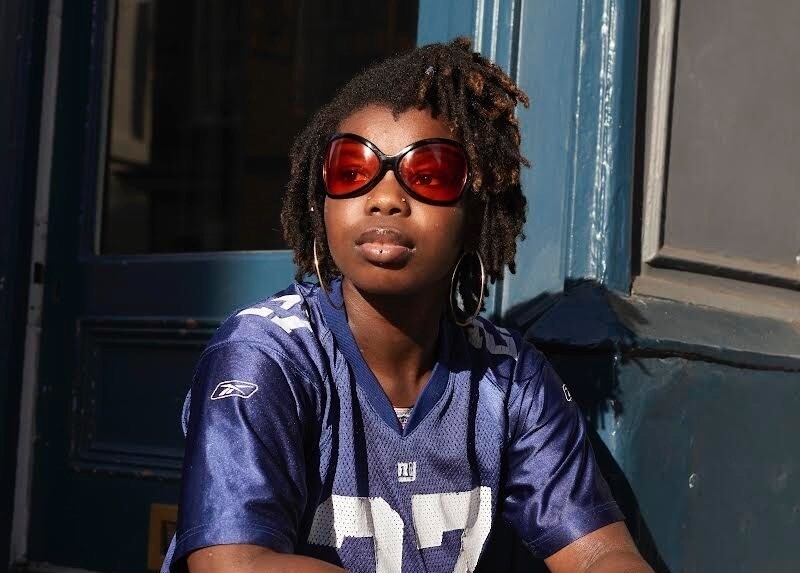
Born and raised in Tottenham, Tia Tshabola’s passion for technology came from a somewhat unlikely source.
“I watch a lot of music videos, and I’ve always liked the ones with great visual effects,” she explains. “That made me realise that technology can be used across many different mediums, from art and engineering to fashion and music. There are so many possibilities yet to be explored."
Tia’s now exploring how creativity and technology intersect as she studies Creative Computing at the University of the Arts London.
She was ecstatic when she heard that she’d won the bursary: “I was jumping for joy!” she said. “It showed me that I have it in me to carry out my dreams and ambitions.”
Sam Osbiston - University of Durham, Computer Science with Foundation
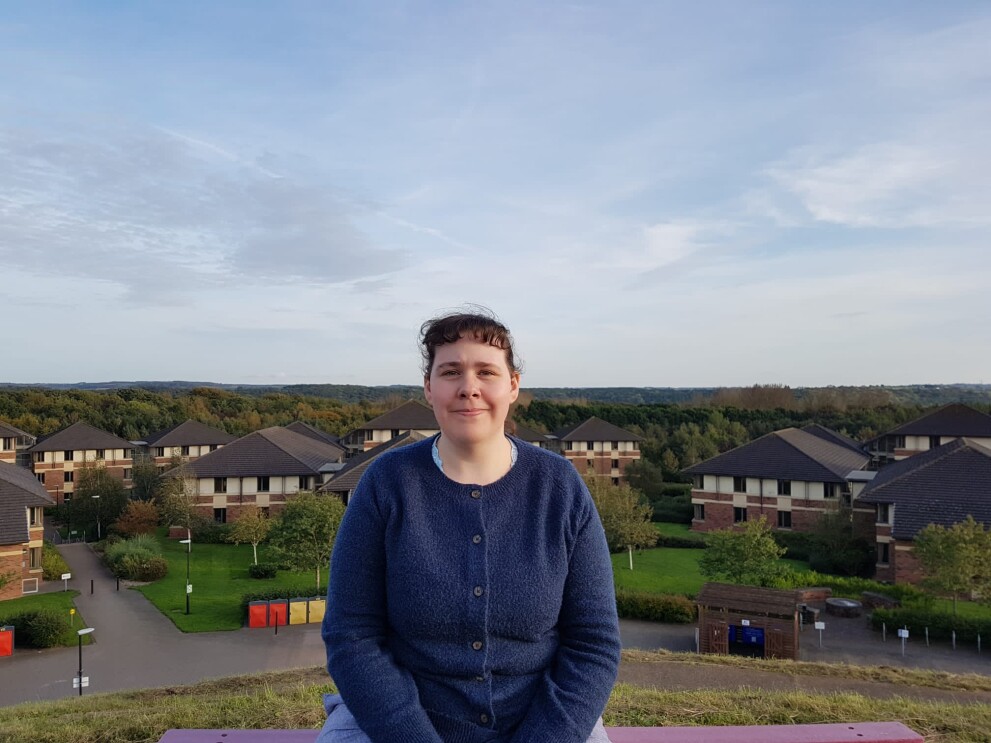
For Sam Osbiston from County Durham, the journey to higher education hasn’t been easy.
“I struggled through school as I had many problems with bullying,” Sam explains. “I ended up getting excluded in my final year of studying for my GCSEs, so I had to teach myself the content and take the exams alone within just five months.”
But it wasn’t until Sam underwent major surgery during the pandemic that she discovered her passion for computers. “Computer Science didn’t exist when I was in school,” Sam says. “Back then we studied IT, and I hated it. It wasn’t until I taught myself to code that a whole new world opened up to me — I fell in love with it.”
Sam is now exploring this new world as she studies Computer Science at the University of Durham, supported by the Amazon Future Engineer Bursary: “The funding has enabled me to do so much. I no longer have to scrimp and save, and I get to experience university life fully.”
Nadira Alom - University of York, Electronic and Computer Engineering
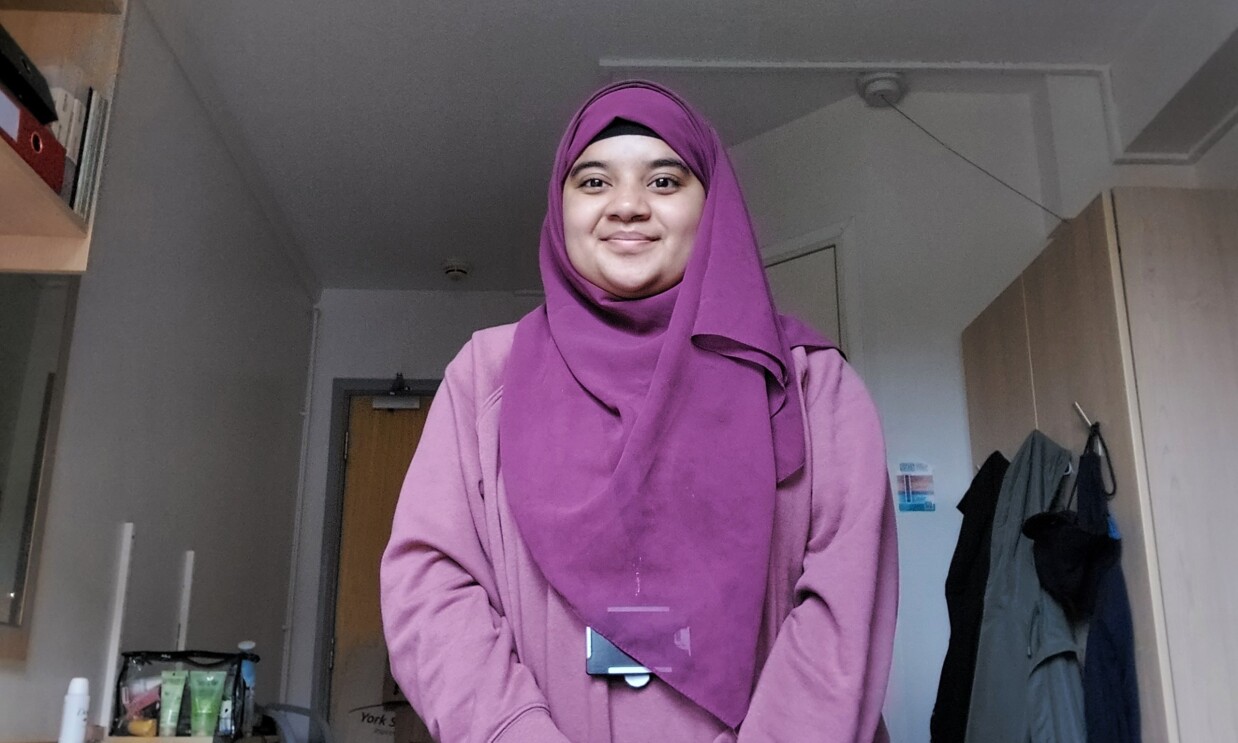
While studying Computer Science, English Literature and Maths at A-Level, London-born Nadira Alom realised how much she connected with both science and literature. “I loved the scientific part of Computer Science and Maths,” she explains. “But I also love being artistic and expressing my thoughts creatively.”
With the support of the Amazon Future Engineer Bursary, she’s now making her mark as a student of Electronic and Computer Engineering at the University of York.
When Nadira found out she had been awarded the bursary, she couldn’t believe it:
“I was really excited because I come from a working-class family on the outskirts of London, and there are a lot of people who can’t pursue higher education because they don’t have the money,” Nadira explains.
“Higher education should be for everyone, not just the privileged, so it gives me hope that there are companies like Amazon who are willing to provide that help.”
Alex Winter - University of Cambridge, Computer Science

Alex Winter’s journey into the world of technology began at the age of nine when she was diagnosed with a visual impairment. Her natural curiosity and need to navigate her new reality led her to explore the possibilities of technology, and she was developing her own games by the time she was 11, with a focus on making them accessible for all.
“It’s so easy to make things accessible, but so many people don’t make the effort,” Alex explains. “I want to use my skills to do good for other people.”
Now, Alex is taking her next steps towards building a more accessible world as she begins her first year of a Computer Science degree at the University of Cambridge.
Having been awarded the Amazon Future Engineer bursary, Alex has the support she needs to further her education and develop her career: “I have a lot more security now, and I don’t have to take on as much other work to support my studies.”
Shikha Shamdin - Edinburgh Napier University, Software Engineering
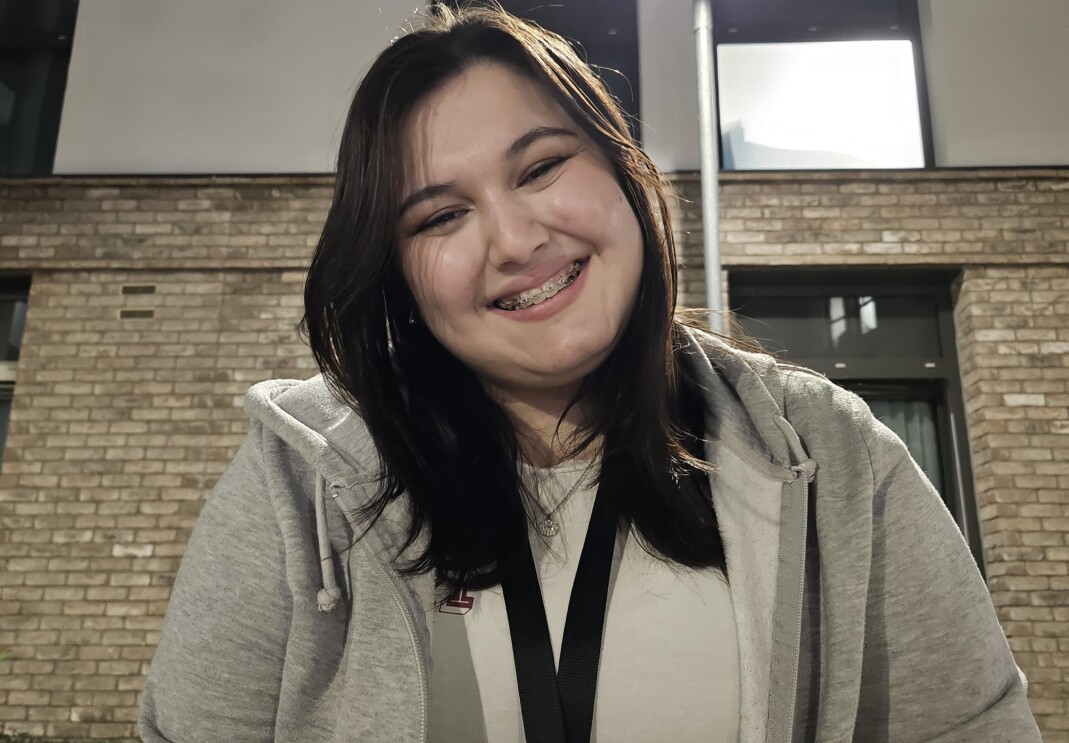
Shikha Shamdin was born in Syria but had to flee the country as a young girl to escape the war. After spending two years in a refugee camp, Shikha and her family were rehomed in Scotland.
Alongside getting to grips with her new environment, Shikha had to overcome a language barrier as she started at school. “Most of the time I didn’t know what people were saying as I didn’t understand basic English,” Shikha explains. “But I was already far ahead with Maths — that was the one thing that made me feel smarter than everyone else!”
It wasn’t until later that she discovered her passion for Software Engineering, which she is now studying at Edinburgh Napier University, supported by the Amazon Future Engineer Bursary.
“I used to want to be an architect, but it was actually a girl on TikTok who inspired me to get into computing and software,” Shikha tells us. “She talked about her experience of becoming a software engineer, and she’d share online courses to help others looking to pursue the same career.”
“I was thrilled to receive the bursary,” Shikha says. “I’m so glad I get to have this opportunity.”
Amazon and the Royal Academy of Engineering are now welcoming bursary applications for the 2024/25 academic year. Applications will close on Tuesday 7 May 2024.
View the full list of 2023/24 recipients on the Royal Academy of Engineering website.


